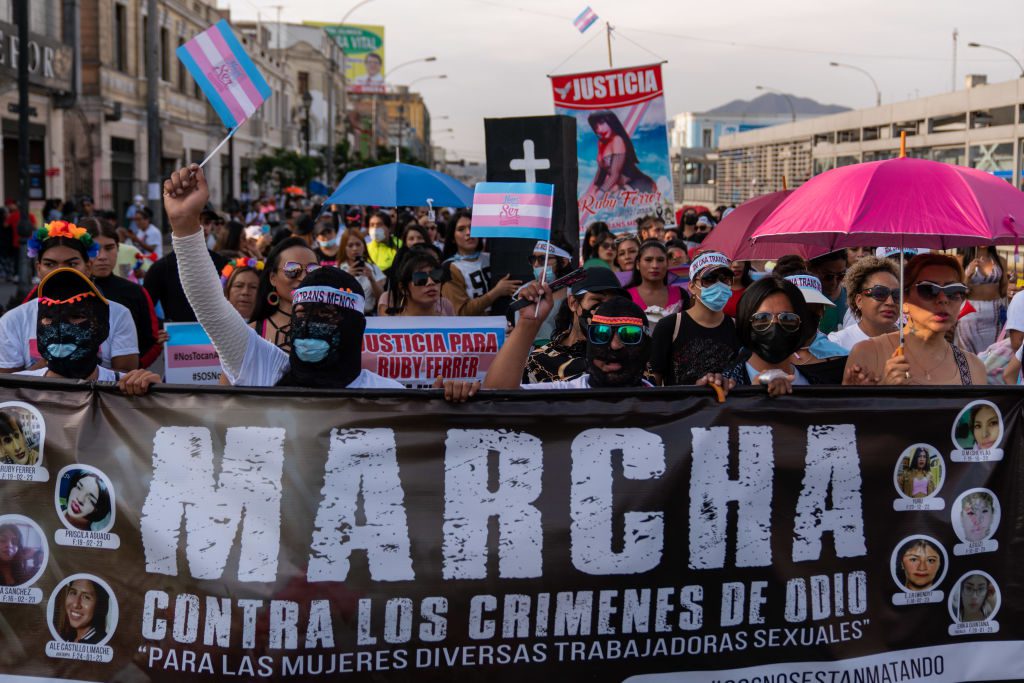On 10 May, the Peruvian government published a decree classifying trans identities as mental health disorders. Human rights organizations quickly responded, raising the alarm. Although health ministry officials said the idea behind the decree was to “protect trans people’s access to health care”, the truth is that it stigmatizes and endangers them.
Mathias Esteban, a trans activist from the city of Cusco and leader of the collective Fraternindad Transdivergente, says that since the decree things have become more difficult, although a growing movement of activists fills him with hope for the future. This is his story.
“Trans people in Peru face obstacles and challenges constantly, in all areas of life. After the decree that states our identity is a mental health issue, things have become even more difficult.
When the decree came out, the whole of Peru was in shock, so we said: ‘We have to do something’. We quickly created a national coordinating body which several organizations from all over Peru joined in order to see how to confront this setback in human rights. We issued a statement and organized a sit-in in Lima on 17 May. I am from Cusco, and I travelled to Lima to participate in the demonstration.
We gathered in front of the Ministry of Health to demand that this decree that harms us be repealed. It was very gratifying to see so much unity, so many transgender activists demanding our rights.
Time to change things
I started my activism in 2020 with Amnesty International’s Diverses group.
The project opened my eyes because, even though I was a trans person, I was out of touch with what other people were going through. So, I started to ask myself: What can I do to try and change this? That’s how I got involved in activism, to try to change things.
Now I run a collective called Fraternindad Transdivergente.
I work with trans children and young people, because I don’t want them to go through what I and others like me have gone through. I want to be the kind of support that I haven’t had. I always tell them that I admire their courage because, at their age, I hadn’t come out and I didn’t even know myself.
I tell them that activism is not easy, and that many people question our motivations, telling us that we are wasting our time, but I tell them not to be discouraged. I tell them: ‘We are doing this because we want a better world for us and for those to come’.

Power of Pride
The Pride march in Lima began in June 2002. In Cusco it started in 2016, because it is a very conservative, very traditional, religious city. Also, the march coincides with the local festival and the LGBTI flag is very similar to the local flag, which makes it seem like everyone supports the rights of LGBTI persons, but in reality, it still bothers a lot of people.
The good thing is that over time the marches have grown, and more and more young people are participating. For me it is very nice to see that they are already free or trying to be free, that they are losing that fear of being judged and that they are going out on the streets and shouting for their rights.
This is the third year that I have participated in a march, because before, when I had not yet come out of the wardrobe as a trans man, I didn’t dare. I always wanted to take part, but I was afraid of being seen.
My first march was very nice because, first of all, I had already come out as a trans person and then because my friends were the ones who encouraged me, they said ‘Hey, we’ll go with you, let’s go’. It felt very nice to know that I was not alone.
I was at the very front of the march, there with the batucada [drums], the giant flag and surrounded by all the other people. It was a very beautiful experience, very powerful.
Gaining visibility
The increased visibility of trans men, of transmasculinities has also been a huge step forward for us. Although we are still invisible. The state does not support us, we are unprotected. That is why the visibility in the march gives us strength, because more people see that we exist.
I also see that acceptance has been growing little by little, although there are still people who insult us or even attack us when we demonstrate. But there is also music, people dancing, people expressing themselves, and that is very powerful.
What we need now is a law that protects people’s gender identity and expression. Without a law it is very difficult to start the process of changing your name, which is the basis for changing your identity card and, with that, accessing health, education and work. Without that, everything is very difficult. The process is cumbersome, it is long and expensive, and it is also difficult to find people to help you with the process of changing your name because you need lawyers. Everything would be much easier if there was a law that allows trans people to fully express themselves.
Visibility is very important but not only in this month. It seems that this month is when everyone supports us, when they are with us. This month we have rights, this month we exist. But beyond visibility, what is important is the fight to change things, and that should happen all the time, not just this month.”


